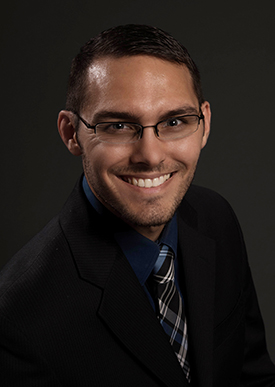
Dr. Matthew Rossheim's research focuses on substance use and related health outcomes.
The Problem with Flavored Cigarettes
[1] Flavored cigarettes are disproportionately smoked by underage youth.
[2] Nearly 90% of smokers begin by age 18.
[3] Menthol-flavored tobacco products are disproportionately used by African Americans.
[4] In 2009, the U.S. Food and Drug Administration banned flavored cigarettes except menthol.
New Research on the Effects of the 2009 Flavored Cigarette Ban
In a new study, Dr. Matthew Rossheim found that the 2009 ban of flavored cigarettes reduced smoking among youth (12-17 years) by 43% and young adults (18-25 years) by 27%. Menthol was not included in this ban.
“Our study suggests that the ban of flavored cigarettes was extremely effective at reducing smoking among young people,” explains Rossheim. “This shows incredible promise for future comprehensive bans of flavored tobacco products, including those in e-cigarettes, which to-date have received significant exemptions. Policymakers should take note of the evidence from this study and pass legislation to extend flavor bans to other tobacco and nicotine products, as well as include menthol.”
Background on Dr. Matthew Rossheim
Dr. Matthew Rossheim is an assistant professor of global and community health in George Mason University’s College of Health and Human Services. His research focuses on substance use and related health outcomes. It has drawn attention to harmful tobacco and alcohol product features and supports the need for stronger public health policies and better enforcement of these policies.
Recommendations for Reducing Flavored Tobacco Usage
To maximize their effectiveness among young people and to avoid increasing health disparities among African Americans, flavor bans should include all flavors and tobacco products. This should be a priority among federal regulators and policymakers as well as local municipalities.
Recent Research by Rossheim
- Flavored cigarette ban significantly reduced youth smoking, new study finds.
- E-cigarette explosion and burn injuries have been underestimated by federal agencies
- Cigarette, waterpipe, and electronic cigarette use among college fraternity and sorority members and athletes in the United States
- Low-priced alcopops pose high risk especially for youth, new study recommends regulation
- “Supersized alcopops” pose unique danger to youth
Contact for More Information
For inquiries and requests for interviews, Rossheim can be reached at mrosshei@gmu.edu.
For additional information, Danielle Hawkins, Associate Director of Marketing and Communications for CHHS can be reached at dhawkin@gmu.edu or 703-993-1931.
About George Mason University
George Mason University is Virginia's largest and most diverse public research university. Located near Washington, D.C., Mason enrolls 38,000 students from 130 countries and all 50 states. Mason has grown rapidly over the past half-century and is recognized for its innovation and entrepreneurship, remarkable diversity and commitment to accessibility. For more information, visit https://www2.gmu.edu/.
About the College of Health and Human Services
George Mason University's College of Health and Human Services prepares students to become leaders and shape the public's health through academic excellence, research of consequence and interprofessional practice. The College enrolls 1,917 undergraduate students and 950 graduate students in its nationally recognized offerings, including: 5 undergraduate degrees, 12 graduate degrees, and 11 certificate programs. The College is transitioning to a college public health in the near future. For more information, visit https://chhs.gmu.edu/.
References
[1] Flavored Tobacco Product Use in Youth and Adults: Findings from the First Wave of the PATH Study (2013–2014)
[2] Preventing Tobacco Use Among Youth and Young Adults: A report of the Surgeon General
[3] Why We Must Continue to Investigate Menthol’s Role in the African American Smoking Paradox
[4] Enforcement of General Tobacco Standard Special Rule for Cigarettes
